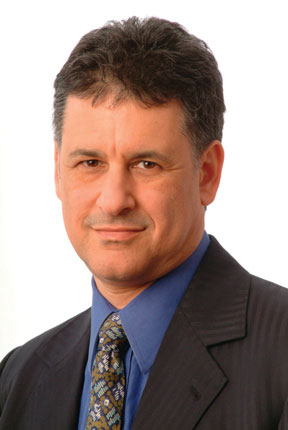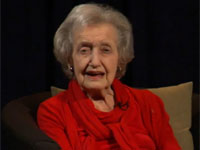Q & A With Psychological Scientist Daniel Levitin (Part 1)
 Daniel Levitin, a prominent psychological scientist, musician, author and producer, will be speaking at the 24th Annual APS Convention in Chicago this May as part of the Music, Mind, and Brain Theme Program.
Daniel Levitin, a prominent psychological scientist, musician, author and producer, will be speaking at the 24th Annual APS Convention in Chicago this May as part of the Music, Mind, and Brain Theme Program.
We invited Twitter and Facebook followers to ask Levitin questions based on his background and research in music and psychology. Here is what Levitin had to say…
You’ve played in rock bands, and you’ve pioneered the academic study of music. Does music shape your intellectual work, or vice versa? Can you give an example of this?
Well first, I’d like to say that as much as I appreciate the compliment, I’m really not a pioneer in the academic study of music. The scientific study of music goes back to Wundt and Fechner (in the 1800s) and Seashore (in the 1940s). There are a number of brilliant scientists whom I’ve learned from and who have been the real pioneers during our generation. To name just a few, Jamshed Bharucha, Annabel Cohen, Lola Cuddy, Diana Deutsch, Jay Dowling, David Huron, Mari Reiss Jones, Carol Krumhansl, Stephen McAdams, John Sloboda, Sandra Trehub, and Robert Zatorre. These pioneers all started in the field before it was popular to do so, before there were dedicated journals to publish in. And they’re all still very active.
I think music does shape my work (and that of my colleagues) and I think the work can shape the music. As an example, the musical observation that my bandmates and I tended to start playing songs in the right tempo and singing them in the right key led to two studies of musical imagery and memory (published in Perception & Psychophysics in 1994 and 1996). And what I’ve learned about memory consolidation and deliberate practice has allowed me to make my own practice/rehearsing more effective. Often I’ll be listening to or playing a piece and I’ll ask myself how it is accomplishing what it does, and that can turn into a study.
Do you have any plans to investigate differential brain activity during the production of music versus the production of speech, perhaps with emphasis on temporal processing, rather than during the processing of those auditory stimuli?
I think this is a logical extension of the recent work we’ve published on music versus speech perception. We have a new paper in Cerebral Cortex that looks at the temporal aspects of this on the perception side. The problem of course with looking at production is the movement of the head and associated movement artifacts in the fMRI signal but I think we have the ability to compensate for that, and yes, I think this is worth doing.
Menon and Levitin (2005): The rewards of music listening: Response and physiological connectivity of the mesolimbic system Menon and Levitin (2005) noted significant activation of the VTA in response to hearing classical music. Furthermore, the correlation between NAc and VTA activation suggests that listening to pleasant music can trigger dopamine release in the brain.
Separate research on the neurological aspects of attention deficit/hyperactivity disorder has implicated dopamine as a potential moderator of the disorder’s behavioral symptoms.
Given the ability of pleasant music to trigger the release of dopamine, could listening to music be an effective intervention/strategy to treat ADHD or increase attention?
My understanding is that the amount of dopamine released endogenously by music listening is an order of magnitude less than what one would normally prescribe exogenously for ADHD or other attentional or cognitive problems. So although music may help a little, perhaps as an adjunct to other therapies, it seems unlikely to be a real “cure” for these problems.
Country music moves me more emotionally than jazz. Why? Early experience? Preferences passed down from parents?
Well we may be comparing apples and oranges here if the country music you listen to is vocal music and the jazz is instrumental – the lyrics of country music may be moving you in particular ways. But assuming this factor is held constant, most people have a preferred style or genre of music. Some of this is cultural, some of it is social, and some of it is personal taste. The psychology of aesthetic preferences is not well understood in a number of domains, not just music. Some people like spicy foods, some sweet, some people like cold climates others like hot – part of it is what you’re used to, part has to do with emotional associates you hold for the different sensory experiences, and certainly part of it is a genetic propensity for preferring one kind of sensory stimulation to another. In the case of country and jazz music, my colleagues Lew Goldberg and Jason Rentfrow and I have found that these preferences do correlate with personality variables and attitudes and opinions surveys. From a social psychological standpoint this makes sense: the type of music we listen to is a kind of social badge that indicates a number of things. People who like country music tend to endorse more traditional family values; people who like jazz tend to be higher on the Big Five “factor V” of openness to new experience.
Could the way auditory stimuli are presented (through headphones vs. big club speakers) affect brain activation?
Without a doubt it does. The spatial cues are more precise and invariant with headphones, whereas with speakers they are dependent on the room you’re listening in (the so-called “second venue” problem). And the different frequency response guarantees that low-frequency representations in the brain will be far more active with the club speakers. Not to mention that the club speakers will activate regions that respond to vibration and the tactile sense, and if they’re loud enough, to vestibular input and the sense of being off-balance you get with really loud music.
Do certain types of music boost serotonin/dopamine (fast tempo?) or is it about individual differences/preferences?
I don’t know of any research on this specific question. But my guess is that any boost in serotonin or dopamine is probably associated with the mood of the music, or more accurately, the mood that the music puts you in. Now there are known associations between tempo and mood: all things being equal, faster music tends to be perceived as happier.
Hypothetically, what would happen to a brain/person who has never heard music in their lives? Would their development be off?
We don’t need to be hypothetical – this does happen, most notably with people who are profoundly hearing-impaired. There’s no evidence that the lack of music per se affects their development. For those of us who do hear, being denied musical input would almost certainly prevent neural networks from forming that can make sense of music, its form and structure. I imagine that there is a critical period for music as there is with language, such that if no input occurs during that critical window, a person would never be able to make sense of music.
How were you able to determine that hunter-gatherer songs were about instructions and such?
The anthropological literature is full of this kind of thing. There are still many hunter-gatherer tribes around the world, and a lot of their music is instructional or historical, like the ballads of the middle-ages: so-and-so did this, and then he did that and that, and so on.
In your book “The World in Six Songs”on page 101: “… cortisol suppresses our immune system, temporarily marshaling all the resources it can for the task at hand (or at foot as the case may be). This may well be one of the reasons why we move our feet or snap our fingers when we hear music. To the extent that music activates our action system—motor sequences and our sympathetic nervous system—our hands and feet become the instruments of that activation. Through these movements we burn off excess energy that could otherwise be toxic
It’s this toxicity that makes me ask: What then, if one decides for a reason not to react with movement of any kind, no matter how excited and happy music can make him feel? Will the self-imposed immobility cause him some kind of harm?
Well without the ability to “burn off” the excess of energy and chemicals, particularly adrenalin, we end up with the chemicals turning on us. This is one theory about why we get ulcers, insomnia, etc.





APS regularly opens certain online articles for discussion on our website. Effective February 2021, you must be a logged-in APS member to post comments. By posting a comment, you agree to our Community Guidelines and the display of your profile information, including your name and affiliation. Any opinions, findings, conclusions, or recommendations present in article comments are those of the writers and do not necessarily reflect the views of APS or the article’s author. For more information, please see our Community Guidelines.
Please login with your APS account to comment.